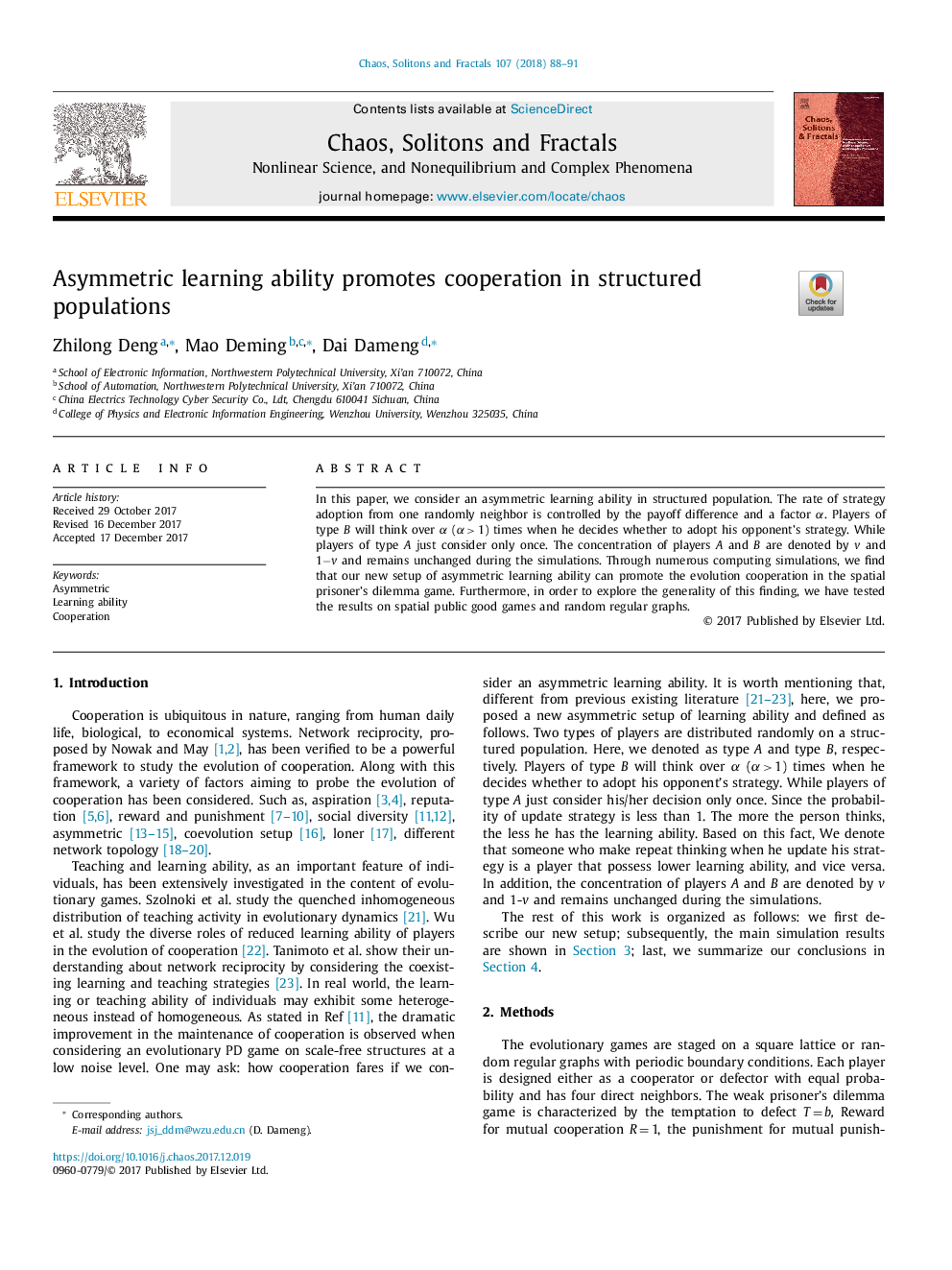| Article ID | Journal | Published Year | Pages | File Type |
|---|---|---|---|---|
| 8254192 | Chaos, Solitons & Fractals | 2018 | 4 Pages |
Abstract
In this paper, we consider an asymmetric learning ability in structured population. The rate of strategy adoption from one randomly neighbor is controlled by the payoff difference and a factor α. Players of type B will think over α (αâ¯>â¯1) times when he decides whether to adopt his opponent's strategy. While players of type A just consider only once. The concentration of players A and B are denoted by v and 1âv and remains unchanged during the simulations. Through numerous computing simulations, we find that our new setup of asymmetric learning ability can promote the evolution cooperation in the spatial prisoner's dilemma game. Furthermore, in order to explore the generality of this finding, we have tested the results on spatial public good games and random regular graphs.
Related Topics
Physical Sciences and Engineering
Physics and Astronomy
Statistical and Nonlinear Physics
Authors
Zhilong Deng, Mao Deming, Dai Dameng,
